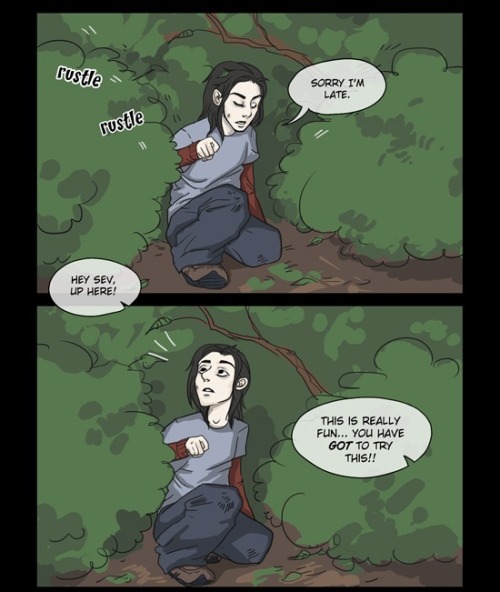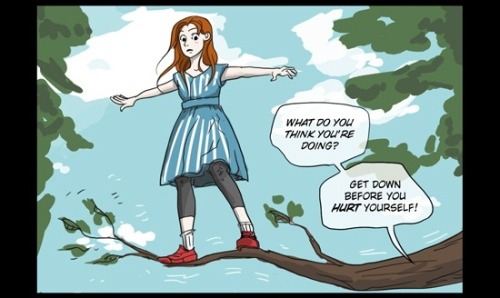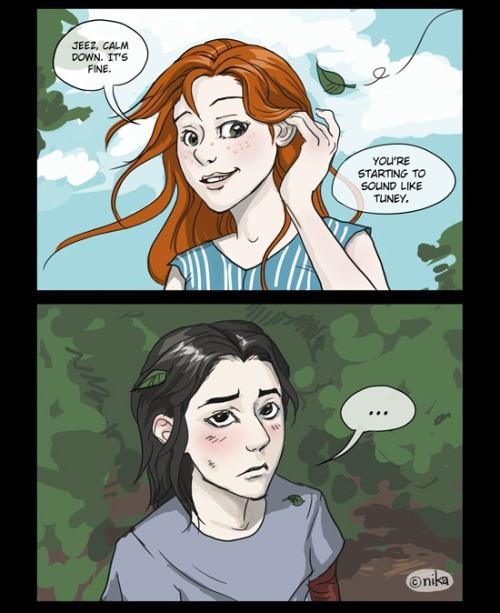I post about Harry Potter and will include some politics. She/Her. Anti JKR. Reddit: u/econteacher22
77 posts
Indihpblog - Harry Potter Blog - Tumblr Blog
This gives Paris Geller as the editor of the Yale Daily News vibes

At some point in his life Snape decided that anyone too dumb to solve his puzzle is out and he's not stopped being relatable since
Yes, Taylor, it is exhausting always rooting for the anti-hero. You get into a lot of stupid internet arguments.
Thanks for the tag @turanga4:)
Hardcover or paperback, romantic story or thriller, fantasy or science-fiction , audiobook or ebook, slow burn or crush at first sight, happy ending or open ending, childhood friends to lovers or enemies to lovers (I can’t choose between these two lol) exes to lovers or fake dating, forbidden love or soulmates, au or crossover ?
Tagging: @snapesnailtape @alohaemora @ailec-12 and anyone else who wants to do it I guess?
hardcover or paperback, romantic story or thriller, fantasy or science fiction, audiobook or ebook, slow burn or crush at first sight, happy ending or open ending, childhood friends to lovers or enemies to lovers, exes to lovers or fake dating, forbidden love or soul mate, au or crossover?
@oneway-closet @chaserofstarsandtheabyss @somanydreams @abtyouandme @autistic-ace-bee @alonetogethermp3 @magalaga-buckley @elle-argents-pencilcase @anyone who wants to do this!
Fic rec: A silly but very in character Riddler fic involving a confrontation with hypothetical rat emoji discord mods. 🐀
With the encouragement of @dementedlollipop and @indihpblog, I have actually posted some Riddler fic! 😳
I doubt it would be interesting to most of you, but if you want some Dano!Riddler crack, check it out here!
This ficlet is so beautiful yet heartbreaking knowing what happens at the end of OOTP 💔🥺. I also love the callback to the SS chess games between Harry and Ron during Christmas time as well.



Finally getting to know his godson.
-
Sirius: Your mother used to sing in the school choir. Do you sing? Harry: No……. Sirius: That’s what everyone who sings in secret says.
🚨| Puerto Rico was hit by Hurricane Fiona with strong winds, causing devastating flooding and landslides throughout the country. Leaving on its path catastrophic damages and 100% of their citizens without power.
News articles:
In English: here
In Spanish: here
Here are some links and threads that provide different organizations where you can donate to help the people of Puerto Rico: ❤️💙🤍

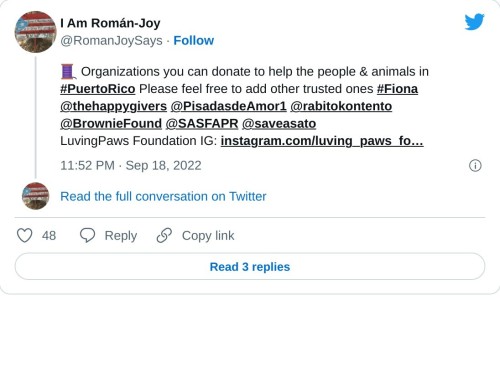
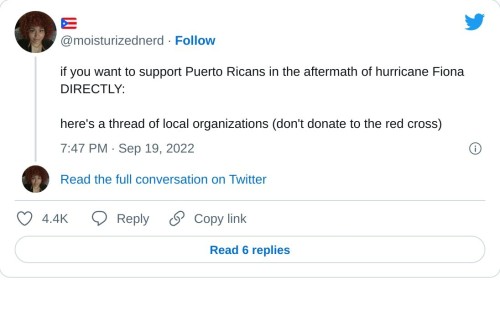

The privileged nature of the Slug Club and how the muggle borns who are allowed access because of being exceptional and treated as tokens is meant to be a critique of British society-specifically the elite schools which were once called “public schools.” Here is a meta for reference: https://at.tumblr.com/heartofaquamarine/slytherin-and-eton-a-primer-on-the-british-school/v1g8ifu8d564
It even calls these schools the “Old Boys Club.”
Finally, I’m curious about your assertion that the consequences of the actions of all redeemed Slytherins aren’t really explored that well. In Snape’s case for example I thought his actions surrounding becoming a DE and delivering the prophecy were quite well critiqued and given a redemption arc for in the series. Do you mind clarifying this aspect?
Why I don’t like Slughorn, kind of.
If there is one character who does not receive enough rebuke, it is the benevolent potions master Horace Slughorn.
Slughorn’s lifestyle comments itself: he runs away from his responsibilities, he surrounds himself with powerful people to whom he can do favours because he wants favours back, he is materialistic. Indeed, an excellent specimen of humanity. But my real problem has more to do with 1) his shameless falsehood (I don’t trust anything he says) and 2) the lack of representation of its true crimes (a problem he shares with all redeemed Slytherins).
On the first point, did anyone ever really believe that Lily Evans was his favourite student?
You shouldn’t have favourites as a teacher, of course, but she was one of mine. Your mother. Lily Evans. One of the brightest I ever taught. Vivacious, you know. Charming girl. I used to tell her she ought to have been in my House. Very cheeky answers I used to get back too.
Doesn’t strike me as the best student-teacher approach ever. That man literally used the martyred dead mother of an orphan boy (hunted for years by a serial killer, who murdered his parents among others) to get into his good graces.
even “But I don’t think I’ve ever known such a natural at Potions!” said Slughorn. “Instinctive, you know - like his mother!” is more about recognizing Lily’s abilities than emphasizing the important bond they had. And again, to gain Harry’s favor. And when Harry does the opposite - that is, uses his mother in his favor - Slughorn seems more persuaded by the fact that Harry is the chosen one rather than Lily’s leverage.
Considering the second point, I’d like to see more exploration on the following topic: Slughorn’s guilt. It’s clear that he regrets giving Tom information about Horcruxes ("I am not proud…” he whispered through his fingers. “I am ashamed of what - of what that memory shows… I think I may have done great damage that day…”) but Slughorn’s great crimes are waaaaay worse- like when his toxic bigotry comes out. It’s like hearing the confession of a murderer who regrets trespassing on his victim’s private property rather than killing her.
He should feel guilty for having been Head of Slytherin House for countless years without taking action to remove the toxic bigotry surrounding the house! Worse still (which even Snape has never done, despite the delicate situation), he’d fueled it with his elitist club, his feigned benevolence toward “inferiors” and his moderate position to mask an obvious obsession with blood purity.
Could do so much better…
A few notes from our DMs that are relevant to wider discourse:
The boxing of POC characters as a monolith is something that is prevalent irl as well.
For example, on reality dating shows such as the Bachelor, there is a huge discrepancy between the number of white leads vs POC leads. Even when the average audience states they’re on board with a POC lead, said lead must still caveat to the status quo. Those who question it—discussing racism within the franchise or problematic behavior—are called to be disassociated from the show. (There was a wonderful Variety article published last year on this).
Another episode which points out the realities POC face in the entertainment industry is “Indians at Work” from the Master of None Netflix series. The Indians who auditioned for a certain role needed to adopt a stereotypical accent for the role. Furthermore, one of the people who auditioned received a leaked email about how the show would accept only one Indian actor. In this, the actor is stuck with either fitting a stereotype in order to pursue opportunities or to fight back against an unjust system where the opportunity would be lost.
The same episode later introduces a new producer who is “progressive,” and is interested in the original actor who auditioned-but to play a role in a spinoff of “Fresh off the Boat.” While the new producer may be “progressive,” the idea of their spinoff—which would still require stereotypical portrayals—and new methods of inclusion only serve to feed the same loophole. In that, it reminds me of people who register as “liberals” and tend to “vote correctly,” but have no concept of systemic racism.
An observation: I wonder if the same people complaining about inclusion ruining their fantasy shows are the same people who are ok with POC actors appearing in fantasy as long as it fits their racist narrative?
If you’re ok with the people of Mereeen being brown ( a city conquered by the white Danerys Targaryen), but not ok with Corlys Velaryon. And ok with the Hadradim (who are rooted in Orientalist stereotypes) but not ok with Princess Disa, you need to ask yourself some hard questions.
What an icon. This incident is right up there with him speaking about the nickname in HBP.

i know i use the word iconic a lot in relation to harry james potter but i feel it bears repeating here
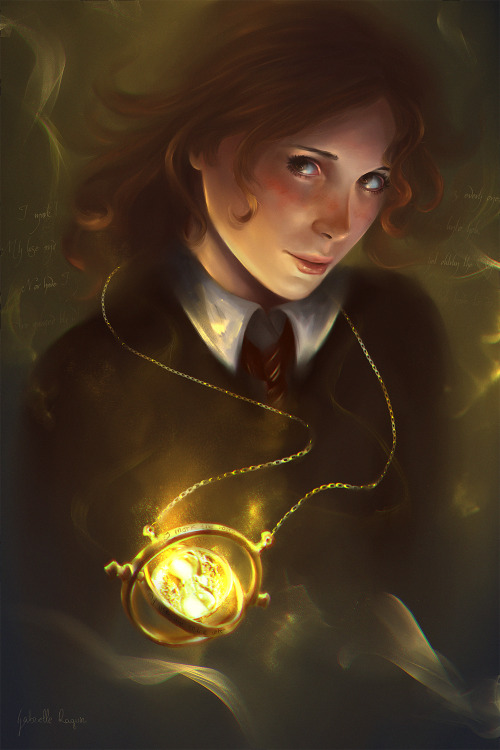
Hermione and the Time-Turner
Follow me on deviantART, Facebook, YouTube, Instagram, Wattpad and Fanfiction.net
remus lupin is a complete dick and frequently selfish and self-isolating to the point of being cowardly but he’s also deeply quietly traumatised in a compounding way that he’s never had the chance to deal with and these things interact with each other to make him the complex character he is so he should be written as such instead of a self-insert socially awkward innocent naive sweetheart in this essay I will
The Forest Again 💔

“Does it hurt?” The childish question had escaped Harry’s lips before he could stop it. “Dying? Not at all,” said Sirius. “Quicker and easier than falling asleep.”
Mrs. Evans One-Shot
Mrs. Evans's second pregnancy was... strange. Different. It seemed to announce itself not through nausea or tenderness or any of the usual signs: for these nine months, Lily's mother had had magic in her body and life had just become subtly and inexplicably easier. The car seemed to park itself, the groceries felt lighter, her eldest even seemed more disciplined and her husband more helpful. She would never forget those months, she knew - when Lily turned out to be a witch, it almost made sense. Her mother had experienced it to a minor degree first hand, and she had felt almost validated when the witch came from the school to explain it all, and she felt relieved when it came to pass, soon after, that Lily had known for two years, that she had made a magical friend.
When Lily was born, almost on the very second, before she even started crying, there was a blackout that nearly gave them all a heart attack - the first manifestation of magic by a terrified new-born, experiencing cold, hunger, and separation for the first time. Mrs. Evans had felt, then, that something had been taken from her, something more than just the baby. Life had become difficult again. Not bad, by any means – she had considered herself blessed and fortunate – but the easy-going smoothness was gone. She had lost the unconscious control she had exerted over the minor frustrations and nuisances, and with two daughters, an infant who seemed to have a supernatural ability to get her way (as it would turn out, she did), Mrs. Evans could not help but to feel the lack. Even so, it was worth it, of course it was, to watch her daughters growing into toddlers, children, girls, to watch the sisters learning they were sisters.
It had not been the same for Eileen Prince, it turned out. Eager to talk to another woman who had carried a magical baby in her womb, Mrs. Evans tried to do the unthinkable and make a friend at Spinner's End. “He's been a pain since he was conceived,” Mr. Snape – on the dole, rotting on the threadbare sofa – answered for his wife. It seemed to Mrs. Evans that the man possessed supernatural hearing: the women were in the kitchen, and Mrs. Snape spoke in a very hushed tone. “Toby didn’t want him to be magical,” Eileen explained, stirring her tea for way too long. “It hurt him to be near me, when I was pregnant. The child must have felt it. And then of course, traveling to London so it wouldn’t cause a stir at the Muggle – the regular hospital, lest something strange happen....”
There seemed to be an inverse correlation between the two mothers’ experience, and Mrs. Evans couldn’t help but think something must be wrong with this woman. She had to be either stupid or wicked to be here, live like this, when she had the power Mrs. Evans had only glimpsed at and still missed.
“A man works and breaks his back to raise a family, and what does he get? A freak who looks down on him for having to work, owl droppings on his countertops!” Mr. Snape butted into the conversation from the other side of the house. How thin were those walls? Mrs. Evans thought it was a bit rich to complain about “breaking his back” whilst sitting on his sofa at midday, or worry about hygiene when the stench from the factory and the garbage strike meant everything had attracted flies.
She knew it was important for Lily to have other friends like her, especially if she was to go to a new school where she would be all alone, but she wished it had been another family – any other family. For the sake of her daughter, she swore she’d be cordial and correct, if nothing else. She would not keep the boy away from Lily until Lily had made new friends, better friends, who could show her how to use magic to improve herself. She was proud of her daughter, and she trusted her to make the best choices as soon as good choices presented themselves.
Second Albus is my favorite one XD

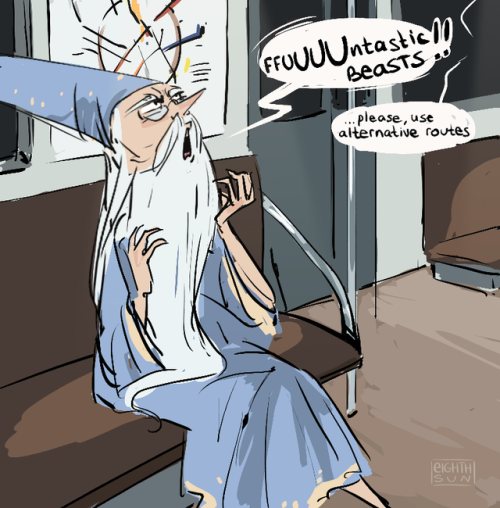
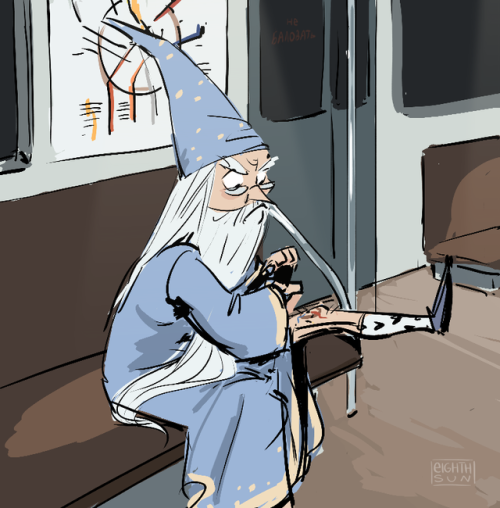
“Scars can come in handy. I have one myself above my left knee that is to perfect map of the London Underground.”
@snapesnailtape He wore green robes to the Quidditch final in POA! We were robbed of this in the movie lmao
My favorite alternate profession for Severus is definitely a Healer, and I just looked on the wiki and was reminded that the Healers at St. Mungo’s wear lime-green robes. Yet another moment when I wish I wasn’t bad at art because I would love to see Severus in that uniform!
Prisoners x Harry Potter Part 1: The Villains
These are notes from a conversation with @snapesnailtape:
While I was watching the 2013 thriller Prisoners, I noticed the series’s main villain Holly Jones has many parallels with Lord Voldemort, the villain of Harry Potter. In this meta I will be exploring their respective life experiences which formed their ignorance, disillusionment in positive supernatural forces, and the methods which they use to subjugate people into darkness.
Prisoners, directed by Villeneuve, utilizes the imagery of the maze to deconstruct the process by which characters in the film process their trauma or imprisonment, leading themselves or others to a doomed fate. (For the purposes of this part, I will be focusing on how Holly uses it to hurt other people).
The mythology of the maze dates back to the King Minos of Crete creating a complex labyrinth with his wife Pasiphe’s son, the Minotaur (a half bull), in the center to devour any prisoners who were placed into the maze. Famously, the Athenian Theseus defeated both the labyrinth and the beast by using the golden thread gifted to him by Princess Ariadne. While the origins of the labyrinth are a myth, the symbol itself is now regarded as an object of fear and damnation by the population.
Keeping with the imagery of the labyrinth, the villain in Prisoners uses it as a spiritual compass. As context for the adoption of the labyrinth as seen in the film: the plot follows the Jones family consisting of Holly and her husband who were once devout Christians, until they lost their beloved son to cancer. After he had passed away, they grew disillusioned with the power of Christ as a supernatural force and adopted the pendant of the maze in lieu of the cross, thereby rejecting the positivity and faith associated with Christianity with the despair and evil of the labyrinth.
Similarly, in the Harry Potter series, the primary villain Lord Voldemort frequently mocks and underestimates the supernatural power of love which leads to his downfall two times. His actions, while irredeemable and wholly evil, are not without a sympathetic background much like the Jones’s. In fact, Voldemort or Tom Riddle, as he was known before his formal ascent to power, was conceived in a symbolic loveless union, orphaned and abandoned at an early age, and forced to grow up a penniless orphan during the 1940s.
Secondly, the methods which Holly Jones uses in Prisoners after her disillusionment with Christ are very similar to the ones Lord Voldemort uses in Harry Potter to both lure followers and handle victims.
In Prisoners, Holly would drive to nearby homes and abduct children. Once the children were abducted, they would be injected with LSD drugs ensuring that they forgot their identity and sense of purpose before succumbing to the “Minotaur” death.
Likewise, Lord Voldemort was known to “trick, jinx, and blackmail” innocent people via magic into being loyal death eaters or otherwise appeal to them with the illusion of grandeur and power they may have never hoped to have achieved otherwise. The targets of Lord Voldemort are either immediately greeted by the “ignominy of death” or treated to a show of “torture” or fright before being murdered.
However, there are a couple people who manage to theoretically escape the restraints of both Holly and Lord Voldemort, but none of the people who escaped were able to live their lives completely rid of their abuse, sin, or guilt.
Two victims of Holly’s–Bob Taylor and Alex– are examples of how the effects of abuse manage to permeate their actions during their lives. In the case of Bob Taylor, he manages to escape Holly’s house physically but recreates patterns from the home in which he was kept captive by stealing clothes from other abducted children of Holly’s, covering them in pig’s blood, burying mannequins of children in yards, and drawing mazes on the walls in his home. In a somewhat similar fashion, Alex Jones is physically given the freedom to escape from her house via an RV, but ends up returning to her house to sleep every night.
In Harry Potter followers of Lord Voldemort’s are branded with the Dark Mark which functions as a Protean Charm, meant to burn the bearer’s skin whenever Voldemort desires his followers to answer his summons. Two former Death Eaters, Igor Karkaroff and Severus Snape both infamously feel the dark mark both grow clearer and burn during the installation’s Goblet of Fire. For Snape, however, the mark also serves as a manifestation of his deep seated guilt in joining the organization and his role in Lily’s death. (Note: I’m keeping this section superficial since this will be a separate meta).
Finally, both Holly and Lord Voldemort meet their ends by the Christ or God figure of their creations via Loki–named after a Norse God–and Harry respectively.
Bibliography:
Loyola University Chicago. Labyrinths: Their Origins & Development: Medieval Studies: Loyola University Chicago. (n.d.). Retrieved August 27, 2022, from https://www.luc.edu/medieval/labyrinths/index.shtml
If Lupin and Tonks had survived the battle do you think their relationship would’ve lasted
i love this question. this isn't something that gets much discussion within the remadora fandom.
i lean toward no. i think lupin and tonks would have had a very difficult time of it after the war for a lot of reasons.
it's hard to say exactly what the political/legal/social landscape would have looked like in the first few years after the battle of hogwarts, but i think it's reasonable to think that even if the legal status of werewolves changed immediately (doubtful), their position in society would be much slower to shift. (it's worth pointing out, because in lupin-centric fics it usually gets glossed over, that it makes sense to be afraid of werewolves! werewolves are dangerous!) so, after the war, lupin is likely still unemployable and kind of a pariah. it's likely that tonks will have lost friends over it, and would be treated differently at work and in any social spaces where people know who her husband is. probably also very difficult for lupin to participate in the public/social aspects of parenting, and school-age teddy is likely to see social fallout from this, too.
those things alone are a huge strain on a relationship, and then there's the fact that lupin is likely to continue agonizing and self-destructing over them. everything he feared their relationship would mean for tonks & teddy is still going to be true. lupin is deeply traumatized and has a ton of maladaptive behaviors toward other people that are clearly evident in canon (manipulativeness, dishonesty, keeping people at a distance, bottling his emotions - and this is the tip of the iceberg that's visible in the books, you can certainly extrapolate a lot more) and i think it's unrealistic to imagine that his epiphany in the last book changed all of this. dude needs therapy, probably a lot of it. being in a relationship with lupin would fucking suck.
meanwhile, tonks is quite young, and canon suggests she has idealistic views about love. she's experienced a huge amount of change in her society, her career and her personal life in a very short time, she's definitely traumatized as well, she's got a baby, she's probably the sole breadwinner, AND she's got all of lupin's issues—psychological and social and health and supernatural issues—to deal with. that is a LOT. sooner or later, once all the big feelings of a new relationship start to die down, staying together is going to be a ton of hard, ugly work for both of them. even healthy partnerships would struggle to survive stuff like this—and i don't think lupin and tonks' relationship seems particularly healthy.
divorce isn't really ever mentioned in hp canon, so who knows what options lupin and tonks would feel like they had, but if they did stay together i feel like they'd be in for some very unhappy times.
i should say, and i think this is evident in my work, that the doomedness of lupin and tonks' relationship is one of my favorite things about it. as much as i like them as characters and feel very real huge feelings about the way things went for them, i wouldn't change the fact that they died, nor do i really enjoy imagining a happy ending for them. the brevity and irony and cruelty and mistakes and regrets and wasted time, and the crater of grief they would have left in the lives of the people who loved them, are all part of what makes their little window of time together fascinating to explore.
that said, don't think it would have been such a tragedy if they made it through the war and broke up. especially if they could still amicably co-parent and move on with their lives. sometimes a relationship is beautiful and special and important and worthwhile, and then it runs its course and ends. most relationships are not lifelong relationships. i don't regret the time i spent with people i used to love, nor do i wish i'd stayed in the relationships that fell apart. sometimes people give each other a few years of love and joy and that's enough. remadora, as a story, is a great reminder to savor what you have, and make peace with the things you don't, because right now might be all there is for you.
Voldemort and the Riddle house
For a while, how conscious of class Voldemort appears to be, has utterly fascinated me.
Particularly as he starts Hogwarts as a penniless, orphan who is ostensibly muggleborn and manages to secure the undying loyalty of monied, blood conscious purebloods.
In my opinion, Voldemort’s subconscious class anxiety is best exemplified in GoF and is shown in two main ways:
Through his relationship to the Riddle house
Throughout the book, Voldemort shows utter contempt for his muggle heritage, even stating to Harry that he:
“ [...] revenged myself upon him, that fool who gave me his name . . . Tom Riddle”
However, though not directly stated, it is implied that he both owns and pays for the house’s maintenance:
“ The wealthy man who owned the Riddle House these days neither lived there nor put it to any use; they said in the village that he kept it for “tax reasons,” though nobody was very clear what these might be. The wealthy owner continued to pay Frank to do the gardening. “
Despite ashewing his muggle heritage by both murdering his family and changing his name, he retains the house. A house that is described as:
“…easily the largest and grandest building for miles around….”
And is seen as a grand representation of the Riddle’s wealth and status within the local community. Although they are never mentioned to be titled (I’ll return to this in the next part), in Little Hangleton they are the upper echelons of society.
So, while Voldemort is on the surface contemptuous of the Riddles, he clutches at their social status as symbolised through his purchase of and subsequent occupation of their manor.
Through the use of language
In the opening chapter of the GoF (titled ‘the Riddle House), Voldemort is being served by Peter Pettigrew.
In almost every sentence uttered by Peter to Voldemort, he addresses him as ‘ ‘My lord.’
And when Peter is being dressed down, he states:
“No! My devotion to Your Lordship — ”
The use of the word ‘lordship’ instead of ‘lord’ is a subtle nuance that gives an insight into how Voldemort wants to be treated while he is staying in his family manner.
The word ‘lordship’ can be traced to the ‘feudal system’ where it conferred a set of manorial rights (land and territory). Whereas referring to someone as ‘My lord,’ or as a ‘lord’ implies Nobility, ‘lordship’ extends that to mean someone who is ‘landed’.
This is particularly interesting as no wizarding families (even the Blacks and Malfoys) appear to be titled, so it can be surmised that the need to be referred to as ‘lord’ is something rooted in Voldemort’s muggle upbringing. An upbringing as a low-status orphan in a very class conscious muggle society, who is then thrust into the very class-conscious Slytherin house.
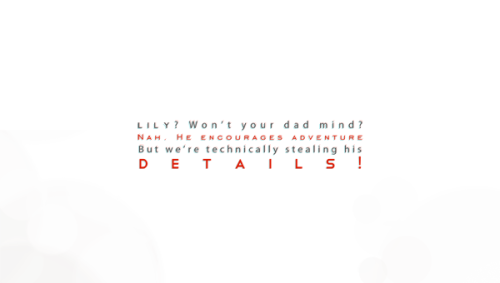

I’ll never stop drawing these two. NEVER.
Amor Fati - Tom, Harry, Severus, Determinism and Choice, Duty and Freedom and Stuff
A vary bombastic title, for a post I am sure is to be somewhat incoherent and wildly inaccurate, but please bear with me (and listen to the song in the link!).
The HP universe (and arguably, ours) is clearly deterministic in some sense, since the existence of prophecies and time turners assumes this. So, we must accept that there's such a thing as Fate, even if "our choices show what we truly are." (Dumbledore seems of the mind that character is destiny, and I agree).
This, Fate, is something Tom Riddle had rebelled against as soon as he found out he was a wizard if not before, in his denial that everyone - even wizards - must die.
The rebellion against death extended to thinking he could even use death as a tool for his own ends in making Horcruxes, using Inferi, and… Imma just assume, being liberal with threats of murder and publicly using murder to make a point.
Then, when the prophecy came, he rebelled against it too (or maybe he thought Destiny had singled him out to win by giving him fair warning), by setting out to murder an infant. Not to give him too much credit for this, but on his way to do it, he did resist the urge to kill a Muggle child, so I can't imagine he had slaughtered defenseless babies left and right for the hell of it. At least, not too much.
And thus, the absolutely ordinary baby got a Fate of his own and became the chosen one.
The importance of choosing what had been decided is discussed in HBP, and Harry is proud that he understands it. It’s committing to and choosing the fait accompli that turns it all around, and Voldemort loses repeatedly for his failure to understand this. He uses and punishes others instead of looking inward and understanding some things are beyond his power, and that it might even be a good thing. He uses his own people as human shields and they lie to him; quite possibly, in murdering Severus in front of Harry he had done the only thing that could make Harry want to see what Dumbledore’s killer (and his parents’ killer, in his mind) had to say. And Harry makes the only choice available to him, fully understanding the consequences.
And then we have the man who chose to live the worst version of his life, and then chose death when he could have saved himself, the opposite of what nearly anyone - but especially Voldemort - would have done. He wasn't a human shield, he was a willing protector. The man walked on a razor’s edge for his entire adult life, always plausibly good or plausibly bad to outsiders, but fully cognizant of the truth internally.
Severus had once unwittingly condemned his only friend to death and then was forced to pull the trigger on his other only friend, in a horrifying variation on the theme. Eternal Recurrence, anyone?
But… you have to mean the Unforgivables, or they don't work. You have to mean it, or it has no meaning. Ultimately, no one could force Severus to do anything. He recognized his own wrong choices and he chose every step of the way to make amends.
“Some are born great, some achieve greatness, and some have greatness thrust upon them.” - Shakespeare, because why wouldn't I invite the comparison :eyeroll:
I’ll argue that Tom was born great and that Harry had greatness thrust upon him – and Severus was all three.
I like to think that he lived up to the Nietzschean ethos of Amor Fati - never delusional about his reality or his prospects, and all the same, he lived his life by his values and embraced the consequences. What a stark contrast with Voldemort, who seemed so desperate to style himself as a Nietzschean Uber-mensch, striving and not realizing that denial of reality, selfishness, and abject cruelty are not the hallmarks of great figures but of children.
Voldemort constantly demands recognition and service from others, like a child, unknowingly living out his trauma of infant abandonment in the process of being revived by Peter Pettigrew. He lacks self-awareness and reflection to the point that you have to wonder how free he ever was. Severus is a servant, and constantly referred to as such. As Voldemort’s true servant, he gets the plot going – but from the moment he makes a genuine choice and is no longer merely a vehicle or vessel, he succeeds and ascends his “servant” status (think "Dumbledore's pet" versus Dumbledore's man"). I love the idea that Voldemort died thinking Severus’s last words were “My Lord,” when in truth they were a request to be viewed as who he was.
And the last memory he gave ended with: Don't worry. I have a plan.
This exemplifies that choice and duty are absolutely not opposed.
To make up to you for this post, here’s a beautiful song that I think conveys the message well.

“It was I who invented them — I, the Half-Blood Prince!”
(Raffle prize for @snapientia)
Amazing. Another way Harry and Voldemort are foils for each other is by looking at their wand woods: Holly and Yew respectively. Holly is considered to be a symbol of protection and prosperity, Jesus’s sacrifice, and has symbolism connected to Christ’s Crown of Thorns.
Yew, on the other hand, is a tree known for its ability to regenerate once it’s branches touch the ground. Its berries and wood are also known for their poison: in fact it was planted in churchyards to ward off animals from grazing there and has been used in literature to represent darkness.
The symbolism of the wand woods tie themselves back into the different methods of resurrection Harry and Voldemort undergo in the series, with Voldemort’s representing a darkness devoid of “willing submission and sacrifice” much like the symbolism of the Yew.
Yew Trees: https://www.ancient-yew.org/mi.php/trees-in-mythology/79
Holly Trees: https://www.flowerkingdom.com/blog/the-symbolic-significance-of-holly/amp/
“The Death Eaters" is not a lame name for a villainous group
I don’t think the name was supposed to inspire fear. While it did have that effect, its purpose was to inspire its members, and for the inner circle who truly aligned with Voldemort, it was the name for their purpose. Of course, I think few were ever as obsessed with defying death as Voldemort was, but I do think there’s something delightfully taboo about it. Eating death…we usually don’t care about what we eat–it sustains us, it’s beneath us, its only purpose is to fulfill our will. We bend it to our use. There are things we treat with respect for their strength exceeds ours, Death foremost. To bend Death to our will, to have no fear at all, to eat it–this is powerful in a way that breaks all taboos, just as Voldemort did in creating horcruxes.
Then there’s the irreverent context–the Death Eaters eat death for immortality, but in a perverse way, not as a religious or pious symbol. Or they are religious, but worship the works of their own hands. So to me it’s quite effective and perfectly capable of inducing fear, for those who bear the title of Death Eater do not play by our rules and care nothing for our laws. They are strange and fearless of the things we treat with reverence.
Then there’s the metatextual layer from the Christian undertones of the book, particularly sacrificial love unto death enabling rebirth. Harry and Voldemort are foils for each other (Snape as well, but I’ll save that for another day). Voldemort’s actions are the artificial or perverted inverse of the things Harry does: He survives by fleeing from death, not embracing it. He resurrects himself through a ritual based on mastering others, rather than being resurrected because of willing submissiveness and enabling sacrifice. Communion, one of the most important Christian rituals, involves eating and drinking in remembrance of Christ, the savior who willingly embraced death for the world to live and be free from spiritual chains. Death Eaters and Voldemort in particular are characterized by ignorance:
“That which Voldemort does not value, he takes no trouble to comprehend. Of house-elves and children’s tales, of love, loyalty, and innocence, Voldemort knows and understands nothing. Nothing. That they all have a power beyond his own, a power beyond the reach of any magic, is a truth he has never grasped.”
